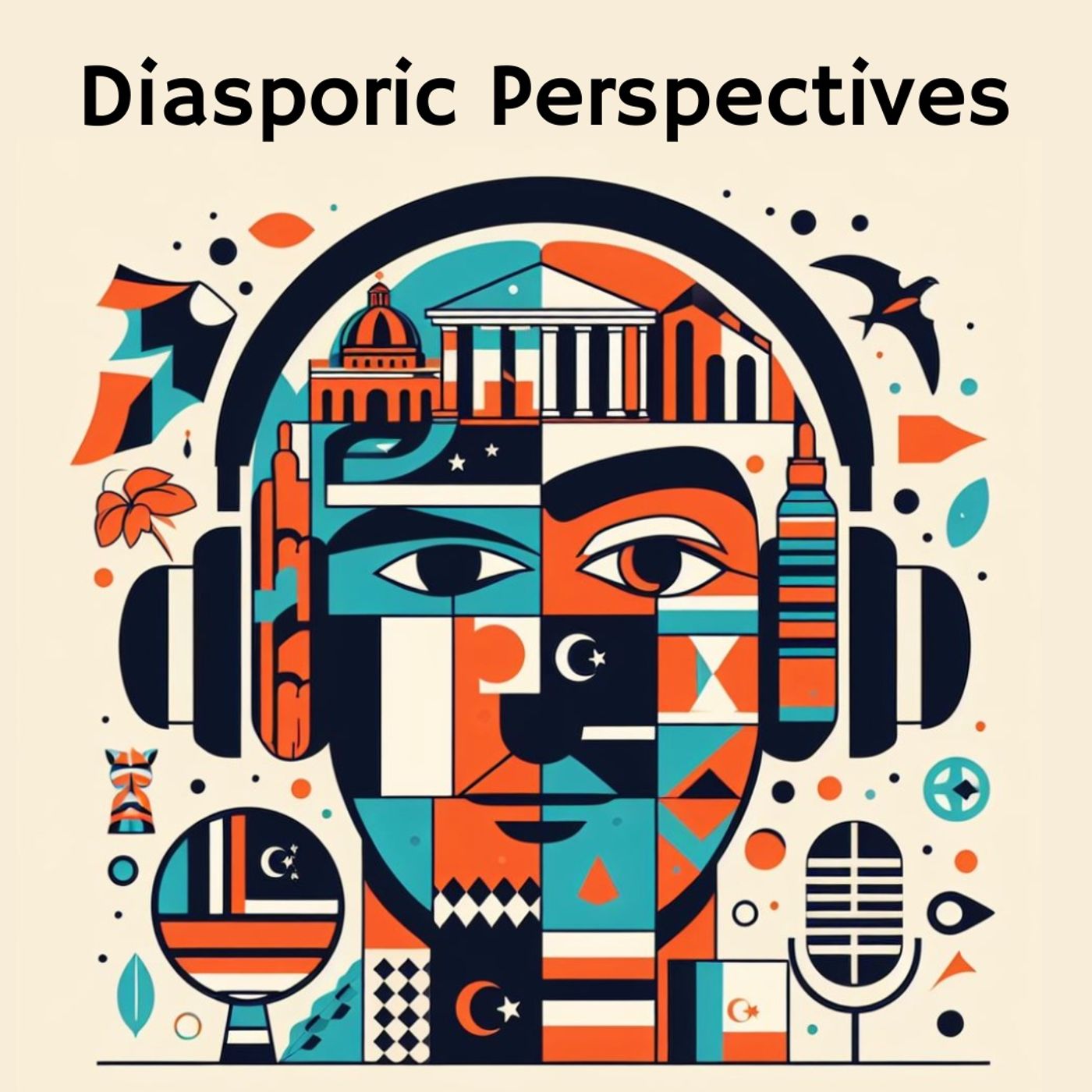Diasporic Perspectives.

Diasporic Perspectives.
Podcast Description
Diasporic Perspectives. Unlearning Imperial Histories with Libyan and Italian artists. Diasporic Perspectives is a series of conversations with artists from Italy and Libya and their perspectives on Coloniality, Archive, Heritage and Translation. It is a project by Dr Barbara Spadaro, Lecturer in Italian History and Culture at the University of Liverpool (UK), inspired by Ariella Aisha Azoulay’s book ‘Potential History: Unlearning Imperialism’. Each episode of the podcast is an interview with one artist about the artwork, ideas and questions explored in their practice. Each conversation reveals different perspectives on the past, present, and potential futures of these memories. Info & contact: [email protected]://www.liverpool.ac.uk/people/barbara-spadaroIG: @drbaspDiasporic perspectives is produced by Botafuego Audio and Dr Barbara Spadaro with a grant of the British Institute of Libyan and Northern African Studies (BILNAS, https://www.bilnas.org/). Sound editing, effects and production by Botafuego Audio and Michael Bayliss. Interviews by Dr Barbara Spadaro.
Podcast Insights
Content Themes
The podcast addresses critical themes related to post-colonial discourse, with episodes highlighting specific case studies such as the intersection of memory and history through Alessandra Cianelli's focus on colonial archives and Tewa Barnosa's exploration of political mythologies and Amazigh languages. Each episode aims to unveil complex relationships between past and present, adding layers to the understanding of diasporic identities.

Diasporic Perspectives. Unlearning Imperial Histories with Libyan and Italian artists.
Diasporic Perspectives is a series of conversations with artists from Italy and Libya and their perspectives on Coloniality, Archive, Heritage and Translation. It is a project by Dr Barbara Spadaro, Lecturer in Italian History and Culture at the University of Liverpool (UK), inspired by Ariella Aisha Azoulay’s book ‘Potential History: Unlearning Imperialism’. Each episode of the podcast is an interview with one artist about the artwork, ideas and questions explored in their practice. Each conversation reveals different perspectives on the past, present, and potential futures of these memories.
Info & contact:
[email protected]
https://www.liverpool.ac.uk/people/barbara-spadaro
IG: @drbasp
Diasporic perspectives is produced by Botafuego Audio and Dr Barbara Spadaro with a grant of the British Institute of Libyan and Northern African Studies (BILNAS, https://www.bilnas.org/). Sound editing, effects and production by Botafuego Audio and Michael Bayliss. Interviews by Dr Barbara Spadaro.
Malak El Ghuel is a Libyan designer and trainee counsellor using the Arts therapeutically to create spaces that foster a sense of grounding and connection with heritage. Her workshop at Beit El-Fezzani cafe in London invites participants to experience the beauty of Libyan culture through textiles and engage in meaningful conversations over tea. In this episode, Malak and I converse with Antonella Russo-Ball, an Italian Integrative Arts Child Psychotherapist based in London whose family settled in colonial Libya. Malak and Antonella discuss how textile memories can mend colonial erasure and revitalize art-making as worldmaking.
Malak El Ghuel: @maaalakkk__ @therapy.rugs
Antonella Russo-Ball: @artsandtherapysanctuary
Beit ElFezzani Cafe London: @beitelfezzani
Tags: #arttherapy #artworkshop #healing #ancestors #diaspora #worldmaking #textile #art #memory #libya #london #heritage #mending #artmaking #africacenterlondon #totalitarianprops
Info&contact:
[email protected]
@drbasp
Diasporic perspectives is a podcast produced by Botafuego Audio and Dr Barbara Spadaro for the British Institute of Libyan and Northern African Studies. Sound editing, effects and production by Botafuego Audio and Michael Bayliss. Interviews by Dr Barbara Spadaro.

Disclaimer
This podcast’s information is provided for general reference and was obtained from publicly accessible sources. The Podcast Collaborative neither produces nor verifies the content, accuracy, or suitability of this podcast. Views and opinions belong solely to the podcast creators and guests.
For a complete disclaimer, please see our Full Disclaimer on the archive page. The Podcast Collaborative bears no responsibility for the podcast’s themes, language, or overall content. Listener discretion is advised. Read our Terms of Use and Privacy Policy for more details.